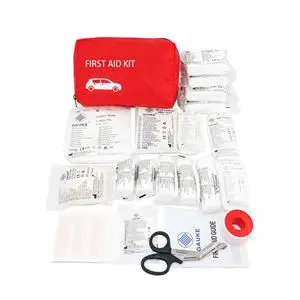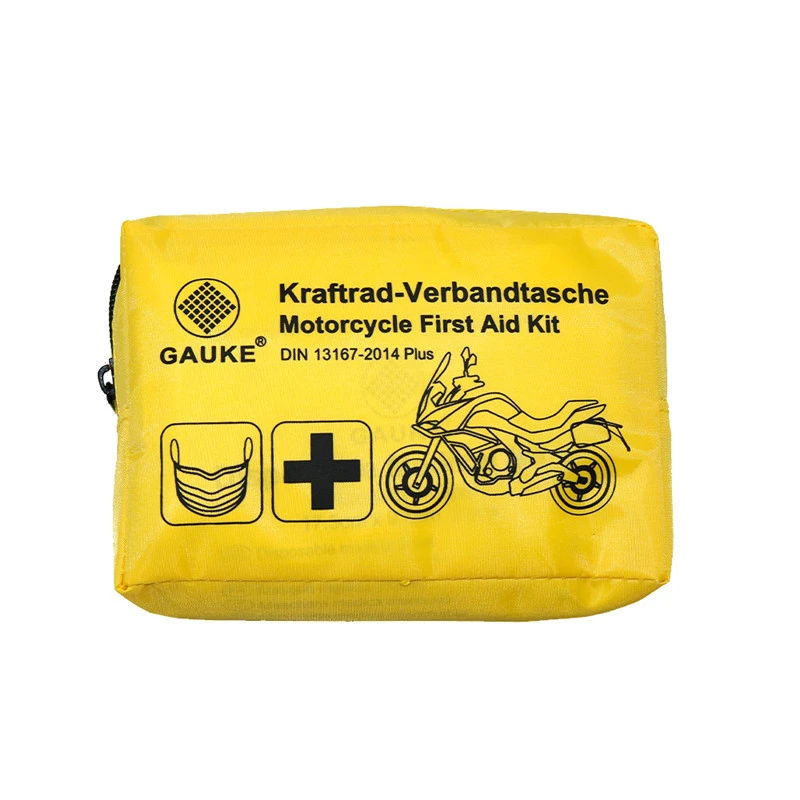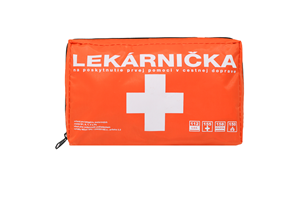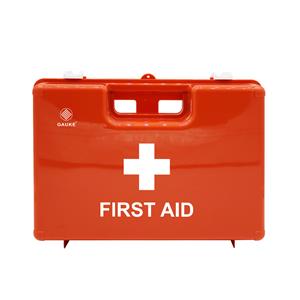Car First Aid Kit: A Must-Have for Every Driver
What is a Car First Aid Kit?
A car first aid kit is a collection of supplies and tools that are used to provide medical treatment. It is usually stored in a box or bag so that it can be easily accessed in an emergency. The contents of a car first aid kit will vary depending on the needs of the driver and passengers.
What to Include in Your Kit
Every car first aid kit should include the following items:
Bandages of various sizes. These can be used to cover wounds and cuts. It's a good idea to have a mixture of adhesive and non-adhesive bandages. Many kits also include bandage clips, which can be used to keep the bandages in place. If you have any allergies, make sure to include bandage materials that won't irritate your skin.
Gauze pads. These can be used to apply pressure to wounds, as well as to clean and dress them. When choosing gauze pads, look for ones that are sterile and absorbent. It makes things easier if they're also pre-cut into various sizes. So, you can just grab one and go.
Cotton balls or swabs. Useful for cleaning cuts and grazes. They can also be used to apply antiseptic solutions. It's best to choose cotton balls that are pre-cut into small pieces. It will make them easier to use and less likely to fall apart. As an alternative, you can use cotton swabs (aka Q-tips).
Adhesive tape. It is used to secure bandages in place. Look for hypoallergenic tape if you have sensitive skin. If you can, get a roll of tape that's at least two inches wide. It will make it easier to use in an emergency. Usually, the wider the tape, the better.
Antiseptic wipes or cream. Used to clean cuts and grazes. It helps to prevent infection. Wipes are more convenient to use, but the cream is more effective. If you have sensitive skin, make sure to choose an antiseptic that's suitable for you. In the case of an allergic reaction, it could be a life-saving decision.
Pain relievers. These can help to reduce pain and discomfort from minor injuries. Make sure you include both over-the-counter and prescription medications if you have them. Pain relievers can also be used to help with headaches, cramps, and other ailments.
Scissors. Useful for cutting bandages and gauze. They can also be used to trim the hair from around a wound. Scissors with blunt ends are the safest to use, as they're less likely to cause further injury. It's ideal to have a pair of small scissors as well as a larger pair. This way, you'll be prepared for any situation.
Tweezers. Used to remove splinters, ticks, and other small objects from the skin. It's best to choose a pair that has slanted tips. It will make it easier to grab onto small objects. Tweezers are also useful for removing bandages. With that said, make sure to sterilize the tweezers before and after each use.
Thermometer. It is used to check for fever. It is especially important if you're dealing with a child or infant. It's best to choose a digital thermometer, as they're more accurate than the old-fashioned mercury ones.
First aid manual. It can provide valuable information on how to deal with various medical situations. Make sure to choose a manual that's easy to understand and follow. It's also a good idea to keep it up to date. That way, you'll have the most current information on medical procedures.
Flashlight. Useful for providing light in dark or dimly lit areas. It is especially needed if you're dealing with an injury at night. The flashlight should be fully charged before storing it in the kit. Of course, you need to have extra batteries on hand, just in case.
Whistle. Used to signal for help. It can be heard from much further away than the human voice. It's best to choose a whistle that's loud and easy to use. A whistle with a lanyard is also a good choice. That way, you can wear it around your neck and have it ready at a moment's notice.
Antihistamines. Its purpose is to relieve allergy symptoms such as itching, swelling, and rashes. As well, they can be used to treat insect bites and stings. If you have severe allergies, make sure to include an EpiPen in your kit.
Multi-purpose tool. It is a handy item to have in any kit. It can be used for a variety of tasks, such as opening cans, cutting bandages, and even self-defense. Choose a tool that has a good selection of features.
Emergency blanket. Used to keep the victim warm in case of shock or exposure to cold weather. It's also useful for other situations, such as a fire. Make sure to choose a blanket that's large enough to cover the entire body.
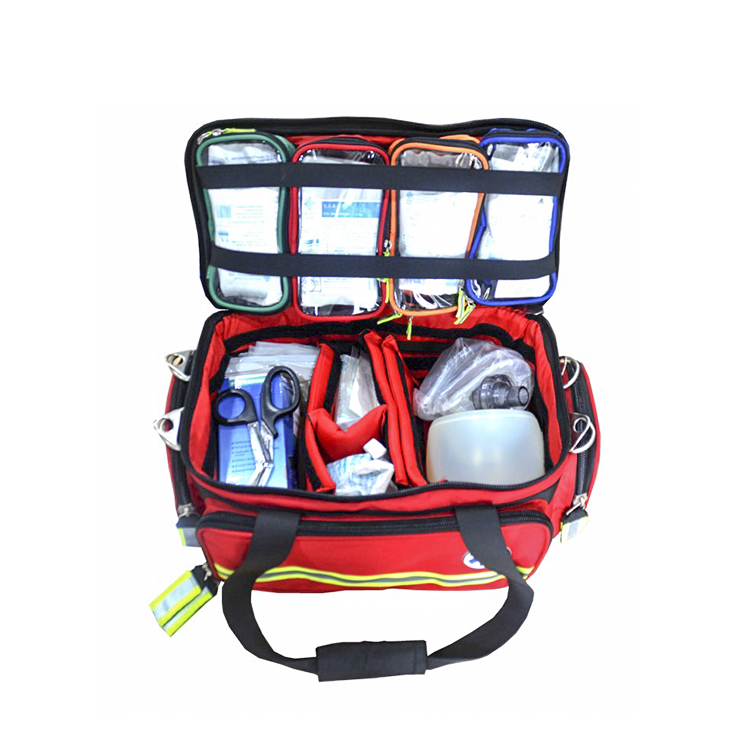
Where to Buy a Car First Aid Kit
You can purchase a car first aid kit at most drugstores, supermarkets, and big-box stores. You can also find them online. When choosing a kit, make sure to choose one that's appropriate for your needs. Consider the size of the kit, the contents, and the price. Also, make sure to check the expiration date on the kit. You don't want to be caught without a kit when you need it the most.
How to Use It
A car first aid kit is a handy tool that every driver should have. It can help you deal with minor injuries and illnesses until you can get professional medical attention. Here are some tips on how to use it:
1. Be prepared: Make sure you know where your car's first aid kit is located and how to open it. You should also familiarize yourself with the contents so that you can find what you need quickly in an emergency.
2. Know your limits: A car first aid kit is not a substitute for professional medical care. If someone is seriously injured or ill, call 911 or get to a hospital as soon as possible.
3. Be gentle: When you're using the items in your car's first aid kit, be gentle. It will help avoid further injury and make the person more comfortable.
4. Clean up: After you've used the items in your car's first aid kit, be sure to clean them and put them back in the kit. It will help ensure that they're ready for the next emergency.
Tips for Staying Safe on the Road
Here are some tips for you:
1. Drive defensively: Be aware of your surroundings and drive in a way that will help you avoid accidents. You should also be aware of the other drivers on the road and their potential for danger. It is always better to be safe than sorry.
2. Buckle up: Always wear your seatbelt, and make sure everyone in your vehicle is properly restrained. It can help prevent serious injuries in the event of an accident. A seatbelt is not a substitute for defensive driving, but it can help keep you safe.
3. Don't drink and drive: Alcohol and drugs can impair your ability to drive. If you're going to drink, make sure you have a designated driver. It's not worth the risk to yourself or others. When in doubt, call a cab. It's a good option if you're not sure you can drive safely.
4. Drive the speed limit: Obeying the speed limit is a good way to avoid accidents. It's also a good way to avoid getting a ticket. Remember, the posted speed limit is the maximum allowed under ideal conditions. If the weather is bad or you're in an unfamiliar area, it's best to drive slower.
5. Don't drive when tired: Fatigue can impair your ability to drive. If you're feeling tired, take a break. It's better to arrive late than not at all. As you get tired, your reaction time decreases and you're more likely to make mistakes. With that said, it's best to plan your trips so that you can get a good night's sleep before hitting the road.
These are just a few of the many safety tips you should follow while on the road. By following these tips, you can help make sure that you and your passengers arrive at your destination safely.
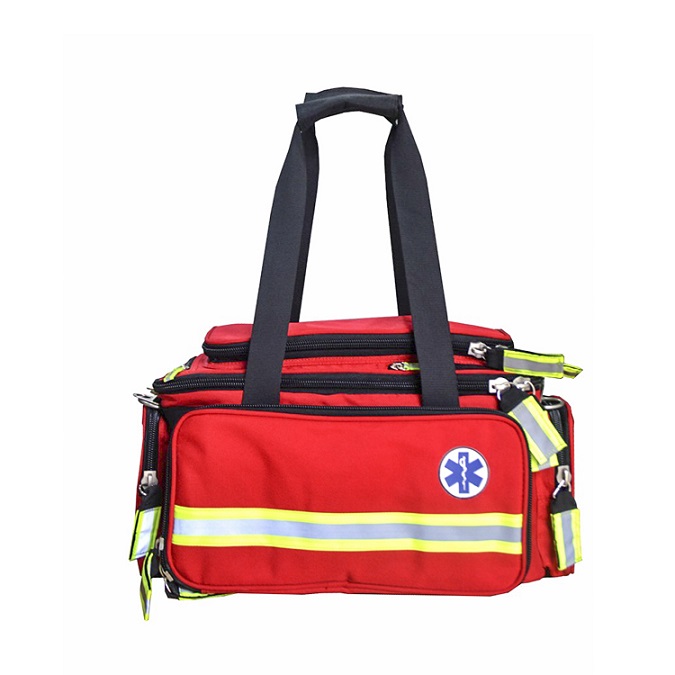
Conclusion
It is important to be prepared for any situation while on the road. Whether you're a new driver or an experienced one, you must have a car first aid kit with you and know how to use it. On top of that, you should also follow the tips above to help you stay safe while driving. By being aware of your surroundings and taking precautions, you can reduce the risk of accidents and injuries. Remember, safety first!

